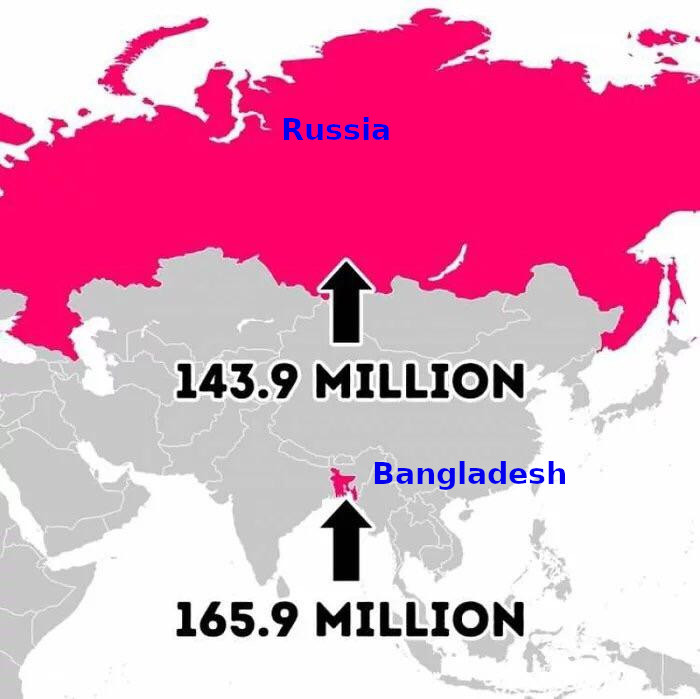"Population Decline Will Change the World for the Better", Scientific American Says
They forgot to ask you and me
An article from the “climate change” section of Scientific American had such a catchy title that I could not pass it up.
… the United Nations predicts dozens of countries will have shrinking populations by 2050. This is good news. Considering no other large animal’s population has grown as much, as quickly or as devastatingly for other species as ours, we should all be celebrating population decline.
Declining populations will ease the pressure eight billion people put on the planet. As the population and sustainability director at the Center for Biological Diversity, I’ve seen the devastating effects of our ever-expanding footprint on global ecosystems.
The article is authored by Stephanie Feldstein, the population and sustainability director at the Center for Biological Diversity.
Stephanie recommends two books, one “The Jane Effect” devoted to Jane Goodall. Jane, just like Stephanie, wishes and works for a smaller population. Look at this one-minute video of Jane speaking at the World Economic Forum.
“all these problems that we talk about would not be a problem if there was the size of the population that there was 500 years ago.”
Stephanie’s Scientific American article explains the climate benefits of declining fertility rates:
While many assume population decline would inevitably harm the economy, researchers found that lower fertility rates would not only result in lower emissions by 2055, but a per capita income increase of 10 percent.
She urges us to shift from growth to degrowth, a term meaning a decline in the quantity of goods and resources our societies are consuming:
Population decline is only a threat to an economy based on growth. Shifting to a model based on degrowth and equity alongside lower fertility rates will help fight climate change and increase wealth and well-being.
Anticipating that lower birth rates in first-world countries will make it difficult to care for aging populations, Stephanie recommends replacing the missing young people via immigration:
But despite how inevitable population decline will benefit people and the planet, world leaders have done little to prepare for a world beyond the paradigm of endless growth. They need to prepare for an aging population now while realigning our socioeconomic structures toward degrowth. Meanwhile, immigration can help soften some of the demographic blows by bringing younger people into aging countries.
Latest Depopulation News Should Make Stephanie Happy
Since I wrote numerous articles highlighting reductions in live births and baffling increases in mortality, let me share some statistical updates.
Births
Sweden is one of the few countries reporting live births by month. The latest report brings disconcerting news as birth rates continue being depressed instead of recovering. For example, February 2023 births are 12% down compared to Feb 2021. (Sweden’s live births started to decline nine months after Swedish women began to get vaccinated in 2021)
Fetal Malformations in the UK Rose by 9%
(this section was corrected to rely on the number of abortions, not on the number of conditions)
As arkmedic reported, abortions due to fetal malformations rose by 9% in the UK in 2021 compared to 2020.
The 9% increase in ground E (fetal abnormality) abortions happened on the background of overall abortions barely changing in 2021. So, these are due to an abnormal and unexplainable increase in fetal abnormalities. Surely cannot be due to the safe and effective Covid vaccines that British women were forced to accept in 2021, right?
Germany Excess Mortality Accelerates Again
Germany publishes a spreadsheet with daily deaths, which we can download and explore. The tab titled “D_2016_2023_Tage” contains these daily deaths for 2016-2023. I computed a 7-day running average of 2023 deaths and compared it to the running average of 2016-2019 deaths for the same days.
Here’s the excess deaths chart by day (the X-axis is the day number, the y-axis is excess mortality smoothed by 7-day average):
Germany’s excess mortality is back to a worrying level of 17%.
We can see that excess mortality and reduced fertility work together to reduce the population of many Western countries, making Scientific American’s Stephanie Feldstein and her WEF friend Jane Goodall happy.
The reductions in CO2 emissions would benefit our planet, they say, and whatever shortfalls in the younger population of Western countries can be supplanted by immigration, thus replacing the native population.
The important science publication Scientific American chose such a celebratory article for a reason - they want to highlight the benefits of population declines that are coming.
Can We Think About This?
It would be easy for me to end my post on a conspiratorial note, saying, “Science funders want us all dead to reduce CO2 emissions” and “The replacement conspiracy theory is finally confirmed.”
Doing so would make a concise, hard-hitting substack post that may see a good number of shares and generate some interest.
However, as my readers are critical thinkers, I want to prompt you to consider the population situation and ongoing depopulation with some nuance. Perhaps, thinking about these questions would lead to a lively discussion in the comment section.
The Ethics and Utility of Depopulation
We have to ask ourselves difficult questions:
Do we have the optimal population level in every country?
Which measures that lead to reductions in the population are ethical and which are unethical?
Even if the reductions in population size, that come as a result of the reckless Covid vaccinations, are unethical, will the world benefit from them?
What sort of population changes will occur if COVID vaccine-related trends continue?
The above questions are complicated.
We, humans, just like most animals, are genetically programmed to reproduce. All of us descended ONLY from predecessors who instinctively desired to have sex and who brought up children despite numerous difficulties and poverty.
So, the desire to reproduce is naturally present in many of us. It is reflected in our culture: many of us think that kids are cute and lovely, pregnancy and motherhood are celebrated, and so on.
Does, at some point, the desire to reproduce conflict with the amount of resources available to us from nature? Compare Russia and Bangladesh, for example.
You can see right away that the population density in Bangladesh is much higher than in Russia. Do both countries have optimal population levels? I would say neither does - Russia could have more people, and Bangladesh could have fewer people.
The “ethics of depopulation” is a topic that would require thousands of pages exploring the moral complexities of influencing people’s desire and ability to reproduce.
However, some things are stark and simple: making people infertile or more likely to die by forcing them to submit to novel, unproven biomedical treatments is never right.
I want to invite you to post comments in the comments section. Is depopulation occurring? Is that a good thing? Can the world benefit from population reductions if such reductions are accomplished by evil means?
Let us know what YOU think!







You are misguided if you believe this overpopulation bs. we’re not rabbits; we can find solutions to our problems but not if there is a parasite class who disrupt natural organic cultural evolution. We’re at the mercy of psychopaths and fools.
All these billionaires and WEF’rs talking about its their job to reduce the population makes me wonder two things. Who put them in charge? Why don’t they go first and leave the planet? Let’s just keep pretending things are normal while they mass murder to save the planet.